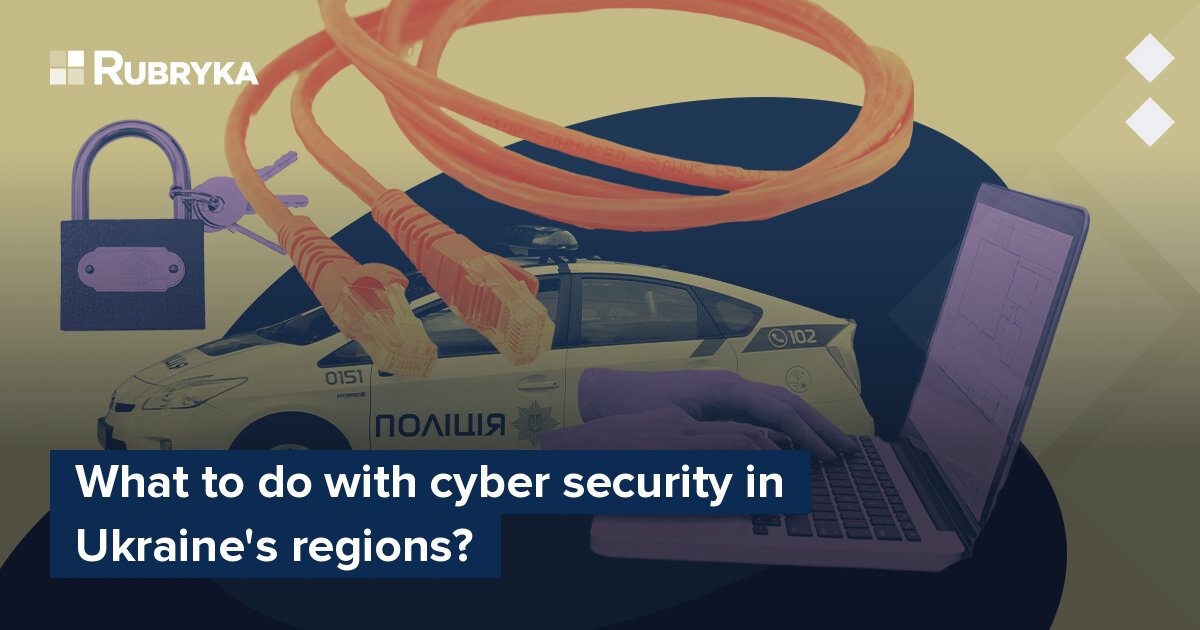
What is the problem?
The Ukrainian-Russian war has long since passed into a hybrid format. The enemy uses all possible means to destroy Ukraine, destroying its stability from within. Since the beginning of the full-scale invasion, the number of cyber attacks on Ukrainian communities has increased significantly. These are attacks on the utility sector, power grids, telecommunications, and personal data in client databases.
Ivan Nachovnyi, deputy for digital transformation of the head of the Dnipropetrovsk Regional State Administration, shared the statistics of cyberattacks on the Dnipro region for 2021 to 2023. In particular, in 2021, the number of blocked SPAM mailings in the region reached 202,508. As of 2023, the figure reached 1,756,342. The number of blocked forms of malware (malicious software: viruses, trojans, etc.) increased by 3.2 times compared to 2022. Also, 240 massive cyber incidents, characterized by scale and aimed at destroying or preventing the full use of attacked resources, were recorded in 2023.
 Ivan Nachovnyi. Photo: Dnipropetrovsk State Administration
Ivan Nachovnyi. Photo: Dnipropetrovsk State Administration
Olena Hunko, head of the information technology department of the Lviv City Council, shares her experience in the Lviv region. In 2022, the Lviv City Council became the victim of the most significant cyber attack they had during the years of independence.
"Fortunately, it was not aimed at stealing data but at stopping our work. Unfortunately, they succeeded, and we spent two weeks to resume operation. Of course, there were backup copies, but it took quite a long time to set them up and return to normal work," says Hunko.
Cyberattacks increase yearly, creating an urgent need for high-quality information protection and professional specialists.
What is the solution?
Cooperation with government bodies and business
Representatives of the regions agreed that interaction with state institutions helps to cope with massive cyber attacks. After all, the capacities of regional centers and specialists are still not enough. In particular, this is cooperation with the Security Service of Ukraine, the Cyber Police, the State Special Forces, the Computer Emergency Response Team of Ukraine, a structural unit of the State Center for Cyber Protection. and others,
Training of specialists is a separate area of cooperation. Nachovnyi shares that the main goal was to form a team so that every community has at least one person who fundamentally understands cyber security. To increase the level of awareness of specialists in information technologies and digitalization, the region engaged the company Yalantis and jointly developed training.
Hunko, head of the information technology department of the Lviv City Council, adds that they draw the necessary knowledge and expertise from technology companies.
Digital literacy of employees
"Almost all phishing (online fraud aimed at stealing personal data from unknowing or unsuspecting users — ed.) occurs through corporate mail. Phishing is the most important problem because it affects not the systems that can be protected but the knowledge and skills of the people who work with them," says Dmytro Kanarskyi, head of the Department of Standardization and Implementation of Electronic Government of the Mykolaiv City Council.

Dmytro Kanarskyi. Photo: Department of Energy, Energy Saving and Implementation of Innovative Technologies of the Mykolaiv City Council
Kanarskyi clarifies that most problems occur because of the digital illiteracy of employees.
Hunko confirms that the issue of digital literacy is acute: "When we offer some services that are much safer and more correct, we face incredible resistance from the end users who are used to working differently."
Oleksandr Tereshchenko, adviser to the head of the Rivne Regional State Administration, says that the Ministry of Digital Transformation and the educational portal Diia.Osvita, which hosts basic cyber hygiene courses, helps them train employees. In addition, the administration conducts closed phishing attacks among its team to test skills and knowledge.
Qualified specialists
"For us to be able to talk about some successful measures in cyber security, we must have people, processes, and appropriate technologies," says the advisor to the head of the Rivne Regional State Administration.
He adds that the lack of qualified personnel in government positions is one of the biggest challenges in work. The team cooperates with universities in training personnel, but this is still not enough.
Hunko adds that retaining specialists becomes more difficult every year: "Probably, the only thing we can do to retain enthusiasts is the incredible experience they get in working with information systems, with the present-day challenges."

Olena Hunko. Photo: FB
Physical security and specialized solutions
The Dnipro community has created a specialized solution — a regional data center that unites more than 88 communities. The deputy for digital transformation of the head of the Dnipropetrovsk Regional State Administration shares that this centralized solution allows small communities not to spend money on server room equipment, equipment purchases, and certification. Communities only need to join the system under the contract of joining for one hryvnia. This makes it possible to implement more policies both in the field of information security and in the field of public services. Such a solution allows to monitor and help small communities.






